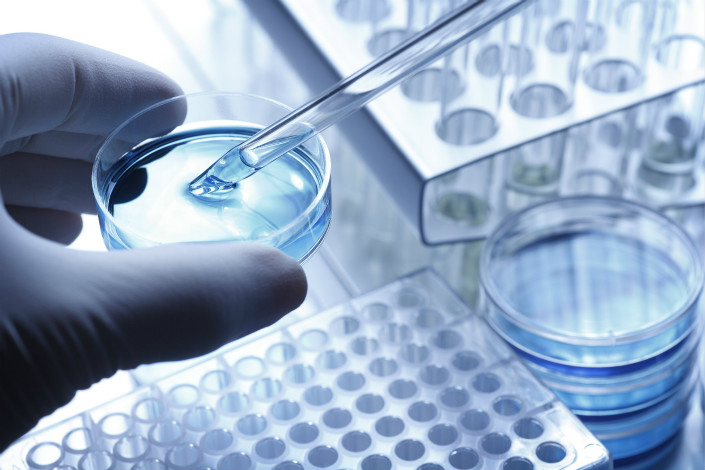Genetic-Testing Startup Gets $15.8 Million in Financing

Chinese consumer genetic-testing company 23Mofang raised 100 million yuan ($15.8 million) in series B funding from a group of investors led by Matrix Partners China.
Zhou Kun, chief executive officer of the Chengdu-based startup, told Caixin in a phone interview that the company is considering going public in China’s A-share market or in Hong Kong.
Zhou said the company has raised a total of 200 million yuan in five rounds of financing since its inception in 2015, and proceeds from the newest round of financing will be used to enlarge a test center, boost research and development of products, and expand further into the market.
Joining Matrix Partners in the funding round were 23Mofang’s existing investors such as Hanwang Technology, Yahui Medical Fund, and Chengdu Deshang Qidian Equity Investment Fund. It wasn’t clear how much the company was valued at.
Zhou said the company has served more than 150,000 clients to date. Last August, the company cut the cost of its genetic-testing service from 999 yuan to 499 yuan. Recently, the company offered a 999-yuan family plan for testing up to three family members.
Zhou said its clients have doubled every quarter since last year.
“Before the price cut, we had about 2,000 to 3,000 clients each month, ” Zhou said. “After the price cut, the number increased to over 10,000.”
23Mofang uses biochips co-developed with Thermo Fisher Scientific Inc. Zhou said the partnership provides a cost advantage to 23Mofang. He attributed the speedy growth of the direct-to-consumer genetic-testing market to cost reductions and an increase in consumers’ health consciousness.
Last year, genomics giant Illumina announced technology that it hopes will bring down the cost of a patient’s entire genome to $100 from $1,000 within a few years. The San Diego-based biotech company controls an estimated 90% market share in next-generation sequencing.
Zhou didn’t disclose the company’s financial condition. But based on an average testing cost of 600 yuan per user, the company has annual estimated sales of 90 million yuan.
Both Chinese mainland and Hong Kong exchanges are looking at lowering listing thresholds for biotech companies. In a consultation paper published in December, the Hong Kong stock exchange proposed new rules to allow unprofitable biotech companies to list there.
Under the HKEX’s new rules, biotech firms need at least HK$1.5 billion in valuation at the time of their listing. Zhou didn’t disclose whether 23Mofang’s valuation has reached that threshold.
China has strict rules for public hospitals to use gene products developed by private companies, but direct-to-consumer genetic tests are less regulated.
In the U.S., the number of people who took direct-to-consumer genetic tests more than doubled during 2017 and now exceeds 12 million, according to industry estimates.
The U.S. Food and Drug Administration is looking to relax its regulation of consumer genetic tests. The regulator recently allowed genetic testing company 23andMe to market directly to consumers its test to help assess the presence of a breast cancer gene.
Zhou expects Chinese regulators will follow suit on genetic-testing regulations.

- 1Cover Story: China Carves Out a Narrow Path for Offshore Asset Tokenization
- 2Drownings Shake Chinese Enthusiasm for Travel to Russia
- 3Over Half of China’s Provinces Cut Revenue Targets
- 4Li Ka-Shing’s Port Empire Hit by Forced Takeover Amid Panama Legal Dispute
- 5In Depth: China’s Mutual Fund Industry Faces Overhaul After a Banner 2025
- 1Power To The People: Pintec Serves A Booming Consumer Class
- 2Largest hotel group in Europe accepts UnionPay
- 3UnionPay mobile QuickPass debuts in Hong Kong
- 4UnionPay International launches premium catering privilege U Dining Collection
- 5UnionPay International’s U Plan has covered over 1600 stores overseas






